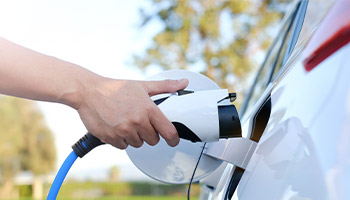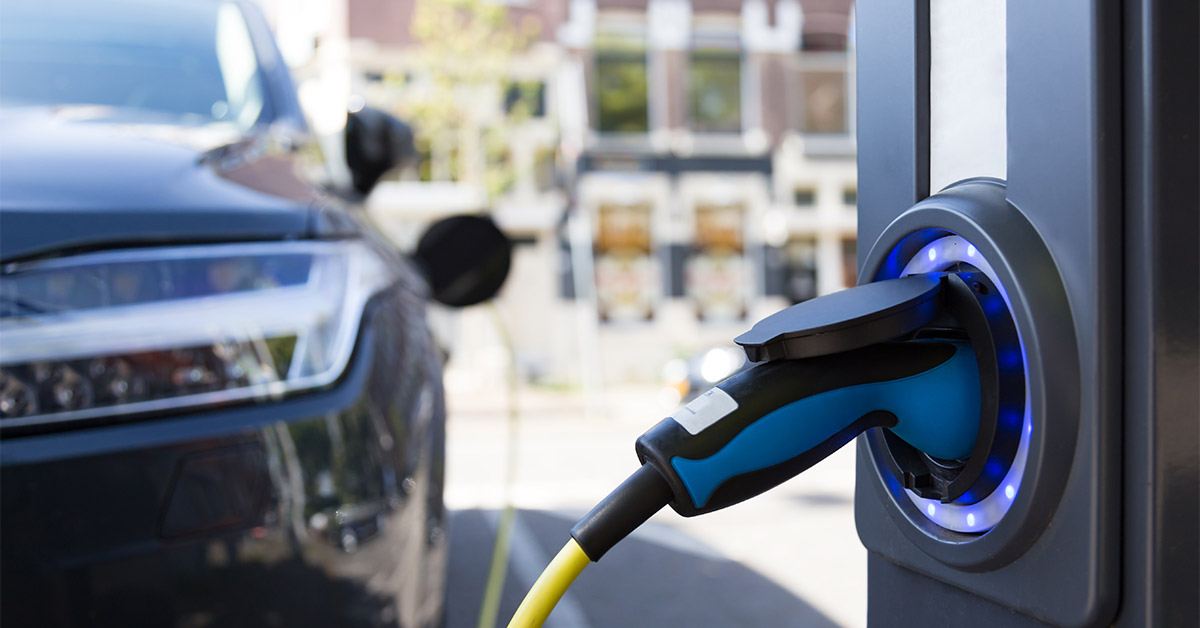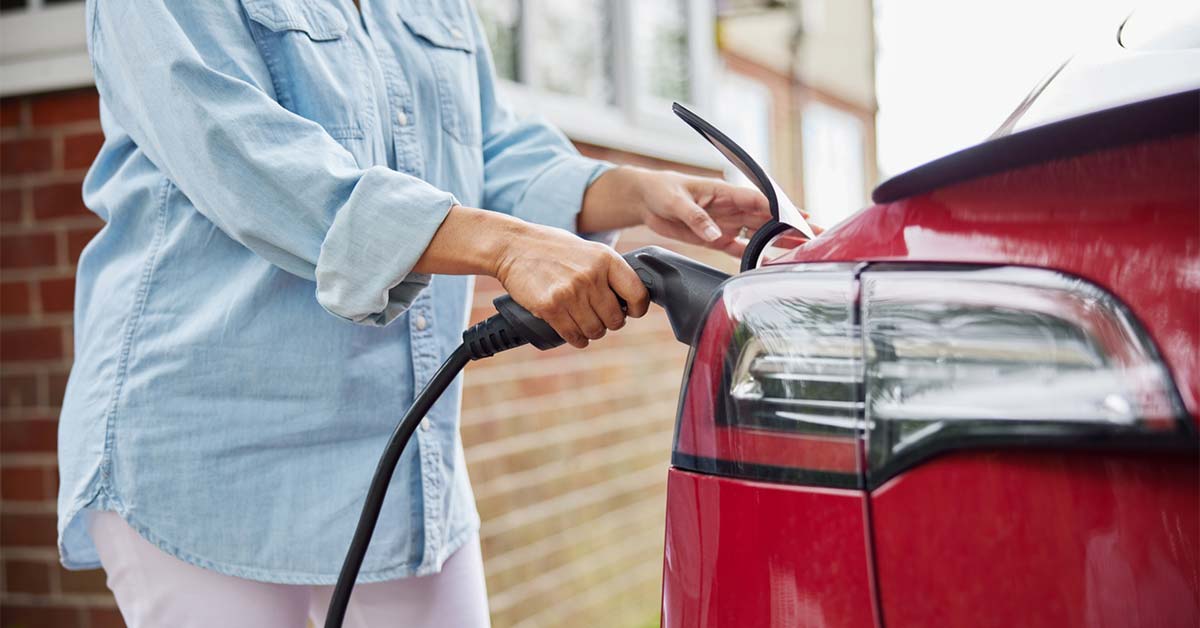Electric vehicles (EVs) are becoming increasingly popular on our roadways as more drivers make the switch from gas-powered alternatives. Some states, such as California, have gone as far as putting forth legislation that seeks to limit the sale of new gas-powered vehicles by 2035. Much like an engine in a gas car, electric car batteries power an EV and propel it forward. But before you decide to purchase an EV, you may ask yourself, how long do electric car batteries last?
In the blog:
- The Basics of Electric Vehicle Batteries
- How Long Do Electric Car Batteries Last?
- How to Maximize Your Electric Car’s Battery Life
- Are Electric Vehicles More Expensive to Insure?
The Basics of Electric Vehicle Batteries

As their name suggests, electric vehicles use electricity to accelerate. Unlike their gas-powered counterparts, no large engines or exhaust systems exist within an EV. Instead, EVs rely on large battery packs to store energy. Although EVs can use different types of batteries, such as lead-acid or nickel-cadmium batteries, most fully electric vehicles use rechargeable lithium-ion batteries. These types of batteries are preferred as they are more energy-dense than others.
An EV’s battery capacity is measured in kilowatt-hours or kWh. Simply put, the more kWh your battery has, the longer you can drive on a single charge. Although not entirely the same, you can think of an EV’s battery capacity rating as a traditional car’s gas tank size. To “refuel” or recharge an electric vehicle, you must plug the car into an electrical power source. However, despite being rechargeable, EV batteries won’t last forever.
How Long Do Electric Car Batteries Last?
EV batteries don’t last forever and begin to lose charging capacity over time. According to the U.S. Department of Energy, today’s EV batteries can last 12 to 15 years in moderate climates or 8 to 12 years in extreme climates. However, most EV manufacturers provide (required) warranties for their batteries, which takes the guesswork out of determining how long your battery should last.

Most manufacturers’ warranties align with federal law that mandates carmakers to provide EV battery warranty coverage for at least 8 years or 100,000 miles, whichever comes first. However, some manufacturers, such as Hyundai, go above the requirement and have warranties that last 10 years or 100,000 miles.
EV battery warranties cover the complete failure of a battery pack and protect against severe degradation over time. During each charge cycle, EV batteries lose a percentage of their total charging capacity. These small percentages can negatively impact the overall driving range as time passes. To keep in line with most warranties, EV batteries must maintain around 70 percent of their charge capacity during the warranty’s term.
How to Maximize Your Electric Car’s Battery Life
Although electric car batteries won’t last forever, there are ways EV owners can ensure they get the most out of their car’s battery. Here are just a few tips to help prevent an early replacement.
1. Keep Your Car’s Systems Regularly Updated
To prevent early breakdowns, EVs have internal computer systems that help regulate the temperature and performance of battery packs. Since EVs are more like computers than standard gas engines, you must always ensure your EV has the latest updates installed. Plus, it may be a condition of your manufacturer’s warranty. Some EV warranties may deny replacement coverage if your car hasn’t installed the latest updates.
2. Charge at Home Whenever Possible

There are three different ways you can charge an EV:
- Level 1 Charging – These stations plug directly into your home’s standard outlets and do not require professional installation. Level 1 charging provides around 5 miles per hour of charge.
- Level 2 Charging – Require a 240-volt outlet on a dedicated circuit that may need to be professionally installed. Level 2 charging provides around 25 miles per hour of charge.
- DC Fast Charging – The fastest charging rate available, which provides 250 miles per charging hour. DC fast chargers cannot be installed at home due to requiring a 480-volt connection to DC power.
To maximize your EV battery’s life, it is recommended to use level 1 or level 2 charging stations whenever possible. Although DC fast charging is great for extended trips, excessive use can cause your battery to overheat and lose its charging capacity.
3. Don’t Fully Charge or Fully Drain
Most EV manufacturers recommend drivers charge their battery packs to 80% to 90% capacity for daily use. Routinely charging to 100% or letting your battery completely discharge can negatively impact its health. However, you don’t need to stress over this too much because EVs have battery management systems that can prevent overcharging. Still, always refer to your owner’s manual to learn what charging levels your manufacturer recommends.
Are Electric Vehicles More Expensive to Insure?
Insuring an electric vehicle is the same process as insuring a gas vehicle. However, you can expect to see a difference in cost. Although entry-level EVs have declined in price since their inception, they can still be more expensive than their gas-powered counterparts due to their extensive electrical systems and parts. Plus, you’ll need to visit a specialized technician to repair an EV following an accident, meaning higher labor costs. These factors could lead to an increased payout for insurance companies following a claim, which makes insuring an EV more expensive.
Find Coverage That Works for You
Are you considering trading in your car for an EV? If so, it’s important to speak with an insurance specialist to understand how your insurance rate may change. Although your insurance may increase, there are other benefits of owning an EV that could outweigh the change.
No matter where you are in the EV market, our team of insurance specialists can assist you with comparing auto insurance quotes from multiple providers. At AIS, we have over 55 years of experience helping our customers successfully navigate the insurance marketplace. To learn more about how AIS can help, give us a call at (888) 772-4247 or start a free quote online.
The information in this article is obtained from various sources and is offered for educational purposes. Furthermore, it should not replace manuals or instructions provided by the manufacturer or the advice of a qualified professional. No warranty or appropriateness for a specific purpose is expressed or implied.


